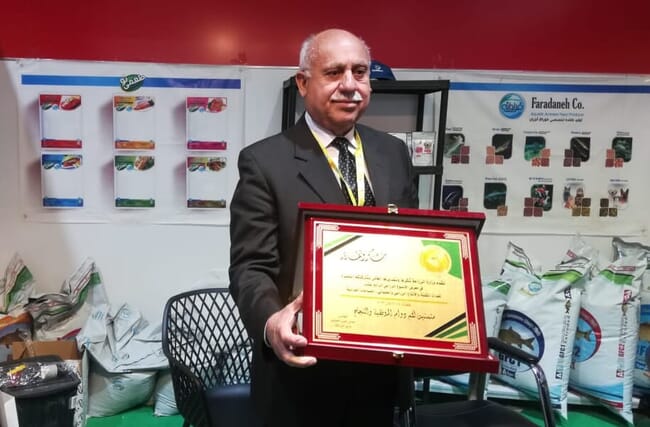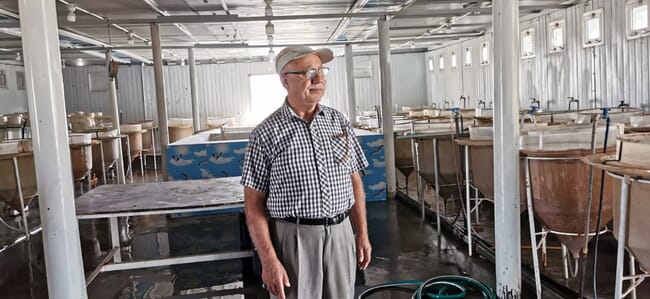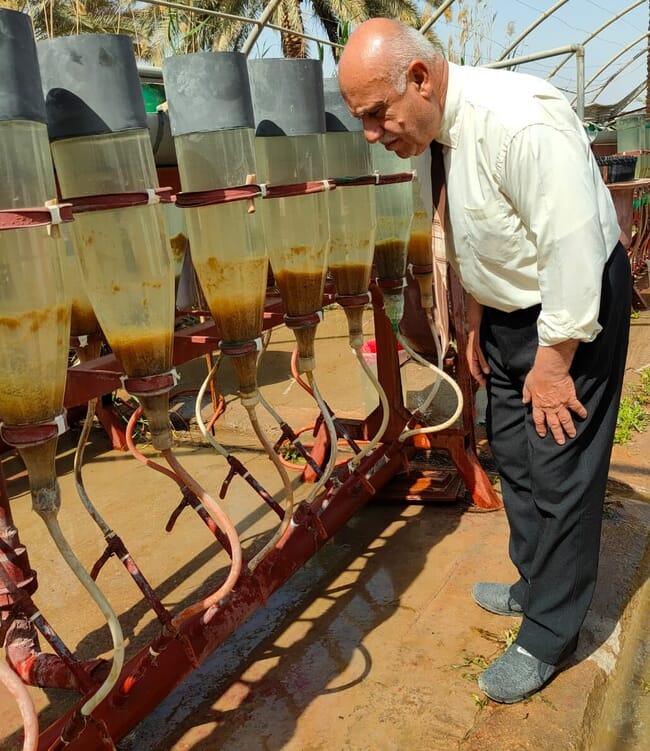
Can you tell me a bit about your background?
With over 17 years of experience in fish farming, I lead initiatives to enhance the sustainability and productivity of the industry.
In addition, I supervise my workshop, which is dedicated to manufacturing specialised equipment for various fish farming systems and hatcheries, helping to raise the efficiency of aquaculture in Iraq.
What inspired you to pursue a career in aquaculture?
Although my studies were not initially focused on aquaculture, my deep fascination with the natural beauty of lakes and fisheries ignited within me a passion for this field. Driven by Iraqis' appreciation for fish as a divine gift, I was encouraged to pursue education and training domestically and abroad, including in Saudi Arabia and Iran. These diverse experiences have greatly enriched my understanding of, and proficiency in, fish farming practices, leading me to be dedicated to developing the industry in Iraq.
What have been your key aquaculture achievements so far?
I supervise the production and distribution of fish hatcheries and equipment nationwide and – through the Rawafed Foundation – hold educational training sessions and seminars on the use of modern fish farming methods of fish farming.
What challenges do you still wish to overcome in aquaculture?
The challenges facing aquaculture in Iraq are primarily attributed to climate change, which has led to a significant reduction in water resources. Since 2018 Iraq's water allocations from Turkey have diminished from 70 billion cubic metres to only 20 billion cubic metres, severely affecting fish farming operations.
Moreover, the decline in these water allocations from upstream countries exacerbates the difficult conditions for fish farming in Iraq, posing major obstacles to sustainable production.

Can you give an overview of the aquaculture sector in Iraq and how it is developing?
Aquaculture predominantly revolves around grass, silver and common carp, in addition to raising native Iraqi fish such as Barbus sharpeyi, known as bunni, and Barbus xanthopterus, known as katran.
Recently, The Iraqi Ministry of Agriculture achieved significant success in breeding the Luciobarbus esocinus, which are known as esocin.
The aquaculture sector in Iraq traditionally utilises mud ponds and floating cages, but there's now a noticeable shift towards closed systems, such as biofloc and aquaponics.
From my perspective, aquaculture productivity is declining, particularly as we witness an annual decrease in fish production rates. This decline is making fish more expensive and negatively impacts the livelihoods of Iraqi citizens. The future of development lies in changing current aquaculture systems to adhere to the state’s directions and towards preserving water resources.
How has the sector survived after so many decades of political upheaval and foreign intervention in Iraq?
There is no foreign interference affecting fish farming in Iraq, but the main factor is the lack of resources due to climate change, and there is also a slight concern about the possibility of illegal fish imports from abroad, which could negatively affect the local market.
Although the risks of this are still relatively low, its potential impact on the local market cannot be underestimated.
To overcome this problem, the government is actively promoting the adoption of closed aquaculture systems such as biofloc and aquaponics.
These systems provide sustainable alternatives, helping to alleviate resource constraints and boost local fish production. While mitigating external threats to industry stability
What advice would you give to people interested in entering the aquaculture sector?
To lead their project effectively, they must have strong fish farming experience and a commitment to the country's trend toward closed aquaculture systems, which is crucial to combating climate change and conserving water resources.




